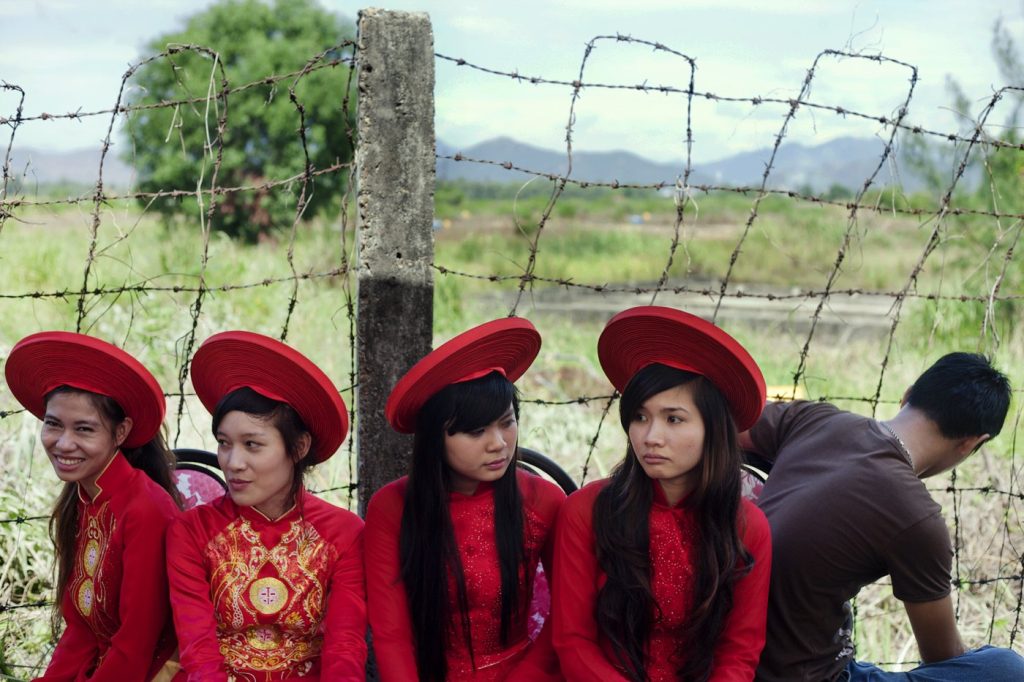At a former American air base in Bien Hoa, southern Vietnam, cleanup efforts for soil contaminated with dioxin from Agent Orange were abruptly halted last month due to significant cuts to USAID by the Trump administration. These cuts not only suspended the dioxin cleanup but also affected projects aimed at clearing unexploded munitions, rehabilitating war victims, and developing a museum exhibit that highlights U.S. efforts to remediate wartime damage.
The cessation of aid poses serious health risks to thousands of people exposed to toxins and threatens to undermine fragile diplomatic relations between the U.S. and Vietnam. Chuck Searcy, a U.S. Vietnam War veteran involved in humanitarian work, voiced concern that the cuts send a negative message about American reliability, stating, “It is just another example of what a lot of critics want to remind us of: You can’t depend on the Americans.”
While funding for the Agent Orange cleanup at Bien Hoa was reinstated shortly after the freeze, the full flow of funds and the operational status remain uncertain, particularly as no USAID personnel are left to manage these projects. Tim Rieser, a senior adviser to Senator Peter Welch, emphasized the ongoing difficulties and the unpredictability of the situation regarding funding for these essential programs.
The U.S. and Vietnam are currently preparing to commemorate two significant anniversaries: the 50th anniversary of the end of the Vietnam War and the 30th anniversary of normalized relations between the two nations. After a protracted and painful history marked by the Vietnam War—which resulted in over 58,000 American and millions of Vietnamese deaths—the countries began to collaborate in the 1990s to address the enduring legacies of the conflict, particularly the health issues linked to Agent Orange.
As China becomes increasingly assertive in the region, U.S.-Vietnam defense and security cooperation has deepened. In 2023, Vietnam elevated its relationship with the United States to a "comprehensive strategic partnership," indicative of the highest level of diplomatic engagement, comparing it to relations with Russia and China.
Effective on Inauguration Day, Trump’s executive order mandated a freeze on foreign assistance, which he criticized as wasteful. However, Secretary of Defense Pete Hegseth reaffirmed the Pentagon's commitment to addressing war legacy issues during discussions with his Vietnamese counterpart. The administration subsequently ordered a massive reduction in USAID's workforce and enacted draconian cuts globally, impacting numerous programs, including those in Vietnam.
Despite the reinstatement of funding for the dioxin cleanup, uncertainty lingers over other war legacy initiatives. The contamination at Bien Hoa, a former bustling military site, is significantly higher than previous cleanup sites. The project, initiated in 2020 and set to span ten years with a projected cost of $430 million, faces serious challenges in its execution after the funding disruptions. More than 8,600 individuals in the surrounding province continue to experience health issues stemming from Agent Orange exposure.
The U.S. embassy in Hanoi and USAID redirected inquiries regarding the cleanup projects to the State Department, which confirmed the continuation of contracts for dioxin remediation but provided no further details on the funding status or operations. Vietnam's Foreign Ministry has expressed concern about potential impacts on human safety and the environment if American funding ceases, emphasizing that halting USAID-supported projects could have dire consequences.
A recent ruling by a U.S. federal judge blocked further cuts to USAID, yet the implications of this decision on staffing and operational continuity remain unclear. Leaders like former Senator Patrick Leahy have highlighted the importance of sustained engagement, arguing that abandoning these efforts undermines decades of diplomatic work and might send a message of untrustworthiness to Vietnam as a strategic partner.
In summary, while initiatives such as the search for missing American troops proceed unaffected, funding cuts have significantly impacted programs addressing war-related issues, including the efforts to support VBAID and exhibit U.S. contributions to Vietnam's healing post-war. The trajectory of U.S.-Vietnam relations could be at risk if these funding challenges persist, leading to distrust in future military cooperation and strategic partnerships.











